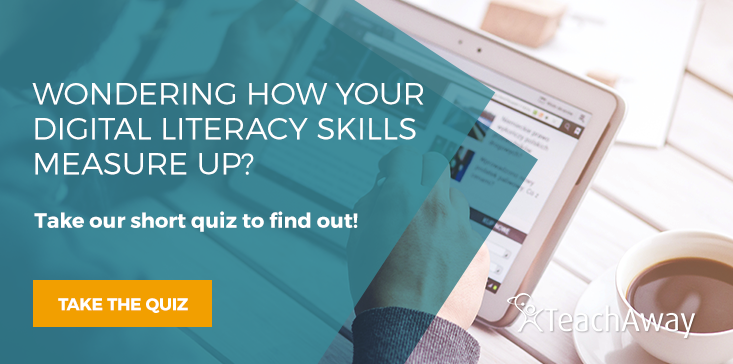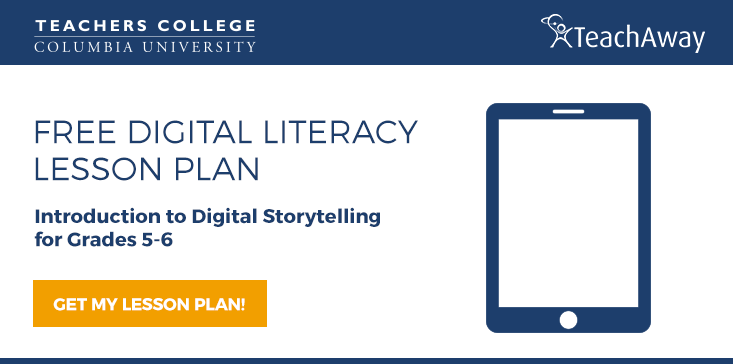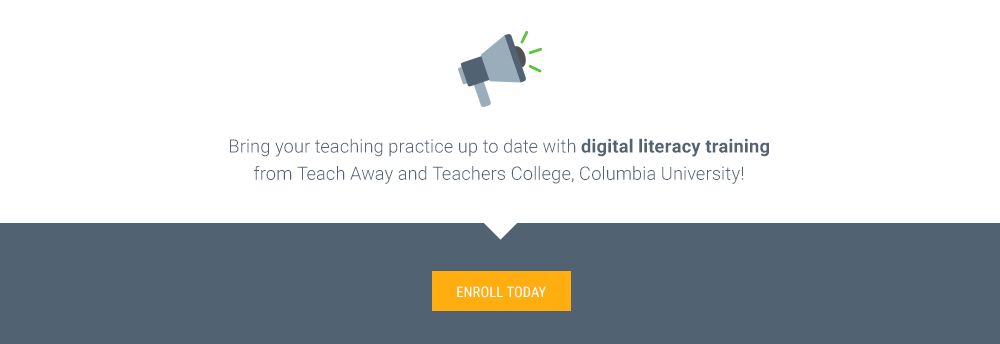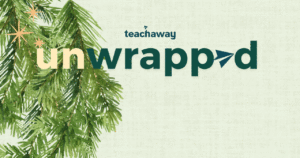In the education world right now, everyone is talking about all things “digital” – digital natives, digital immigrants, digital curriculum, digital literacy, digital learning and teaching. It’s safe to say the digital world is here to stay and will continue to permeate every aspect of our lives, education being no exception.
Buzzwords aside, as the education landscape for K-8 teachers and students becomes progressively tech-centric, being “literate” isn’t just about being able to write a story, letter or even an email. It’s about so much more than that. Our students will be leaving our classrooms and entering an increasingly digital, ever-changing world.
Digital learning (that is, any type of learning that is facilitated by the direct or indirect use of technology or digital tools) is a potential game changer for teachers when it comes to boosting student learning in the classroom. Today’s students will enter a future workforce that requires skills such as critical thinking, creativity, problem-solving, collaboration and tech savviness. We know that, when used in ways that deepen learning, new technologies can help students develop and practice these critical skills – and be better prepared for their futures. Getting them ready for the global digital community is, in large part, up to you.
In the digital age, teachers need to be flexible and adaptable to whatever gets tossed their way. New technologies are being developed every day that change not only how students learn, but how teachers teach.
As a teacher, you may have been instructed by an administrator in the past to use a tech tool or app – even if it didn’t make sense for your students or curriculum. A digitally literate teacher knows how their students engage and learn and can advocate for the right digital tools and technologies in their classroom. But if you don’t feel ready to navigate the complex area of digital literacy in education just yet, you’re not alone.
Today’s teachers were careened into the digital age without much say in the matter. As digital immigrants, we have to figure things out as we go along. The good news is that we also happen to be the first generation of teachers with the unique opportunity to shape how our students – digital natives – use and engage with digital tools and technologies in positive ways that can help them become successful digital citizens.
While this idea is exciting and liberating, what do we, as educators, really know about how to prepare our students for success in the digital age? While a teacher’s job today is very different than it was just a few decades ago, in many cases our teacher preparation programs remain stagnant.
Some teacher preparation programs are working to revamp their programs to improve the digital literacy of future educators. But for teachers already in the K-8 education field, this shift hasn’t happened quickly enough to impact student outcomes when it matters most – right now.
So how can a practicing teacher work proactively to bridge the gap between this current reality and the needs of today’s digitally-savvy student? Dr. Detra Price-Dennis, an educator from Teachers College, Columbia University, believes the answer lies in teachers taking ownership over their professional development.
A recent recipient of the American Educational Research Association’s Division K Early Career Award for her research record and contribution to the field of teaching and teacher education, Dr. Price-Dennis teaches courses at Teachers College, Columbia University to raise educators’ awareness of their own digital literacy skills so they can prepare students for meaningful participation in complex digital spaces.
To address the growing need among educators nationwide for practical, teacher-centered digital literacy training, Teachers College, Columbia University and Dr. Price-Dennis have partnered with Teach Away to develop an online professional development course for teachers: Digital Learning for the K-8 Classroom.
As Dr. Price-Dennis explains, “Every day, new education technology is being introduced to the market to support teachers as they explore digital learning in their classrooms. This course provides a foundation for teachers that connects theory and practice to cultivate their understanding of digital pedagogy and support their development of digital literacy skills.”
By bringing digital literacies and learning into your classroom, you can prepare students to excel not just in school, but also in the future workplace and throughout their lives. Digital literacy isn’t just about putting devices in students’ hands, though.
Our students aren’t born with digital literacy skills. While they may be comfortable using digital tools, their understanding of what these tools for can do for education purposes is often limited. They may know how to use Instagram to share a photo with their friends, for instance, but they might not know how to use it as a platform for a history project. This is where you (the teacher) come in.
Let’s flesh out the Instagram example a little more. We all know how filters, captions, hashtags and images on Instagram work together to form our own personal brands. It’s why we choose to post certain things. As a digitally literate English teacher, for example, you could ask your students to create accounts for the characters in a novel.
Now, your students will have to interpret their own understanding of the social platform, Instagram, with their understanding of a character from the novel. The character’s Instagram handle, the image, the filter, the caption, all needs to be interpreted through the eyes of the character.
As teachers today, we need to be aware of which digital technologies and tools to use in the classroom – as well as how and when – in interesting and creative ways to expand student learning. To unlock your full teaching potential, however, you need to have the digital knowledge, skills and confidence to rise to the occasion. As an educator, it’s up to you to be at the forefront of teaching with digital technologies, supporting digital literacy in your classroom so your students have no ceiling in a rapidly expanding and changing education landscape.





